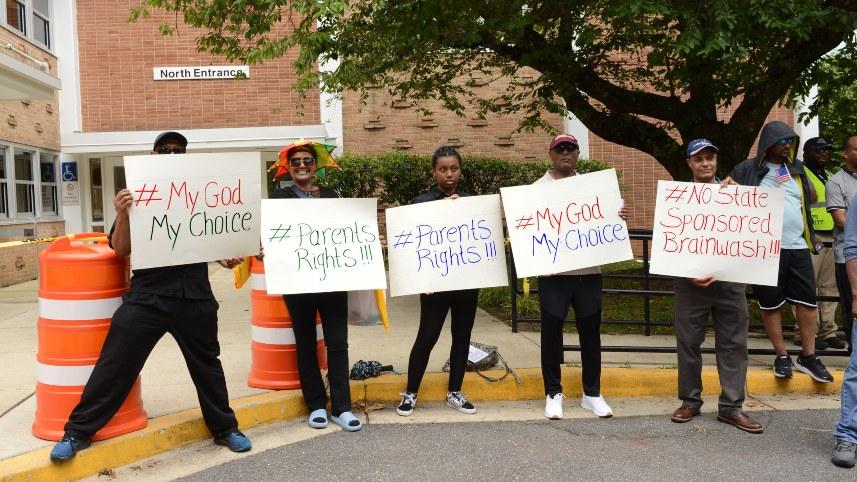NCSE's Branch discusses opt-out policies with Chalkbeat

Protestors in Rockville, Maryland, seek to restore an opt-out policy in the schools. Photo by Stephen Melkisethian on Flickr.
NCSE Deputy Director Glenn Branch discussed the implications for evolution education of the Supreme Court's eventual decision in Mahmoud v. Taylor with Chalkbeat (April 18, 2025).
"At the heart of the case," Chalkbeat explains, "is a longstanding tension between the power of parents to direct their children’s education and the authority of public schools to set their own curriculum. The high court's ruling could decide whether parents have the right to opt their children out of any content that they see as at odds with their faith — and how far schools must go to accommodate them."
Echoing his and Eugenie C. Scott's arguments in Evolution: Education and Outreach in 2008, Branch argued that opt-out policies specifically involving evolution are unworkable. "Evolution comes up so many times in biology class — from learning about the structure of a cell to taxonomy to genetics — that teachers would need 'revolving doors' for kids to cycle in and out. That would be disruptive for their classmates, too."
The constitutional law scholar Douglas Laycock, who co-authored a friend-of-the-court brief supporting the parents seeking to opt their children out, told Chalkbeat that evolution is among the topics to which parents are most likely to object. Recognizing the centrality of evolution to biology, he suggested that students who opted out of evolution should not receive credit for the biology class. (Yet a biology class is often required for graduation from high school.)
The Supreme Court is scheduled to hear oral arguments in Mahmoud v. Taylor on April 22, 2025; a decision in the case is expected by June 2025.
